Queens squatter who tried to prove address with Shake Shack receipt is indicted for burglary, identity theft: DA
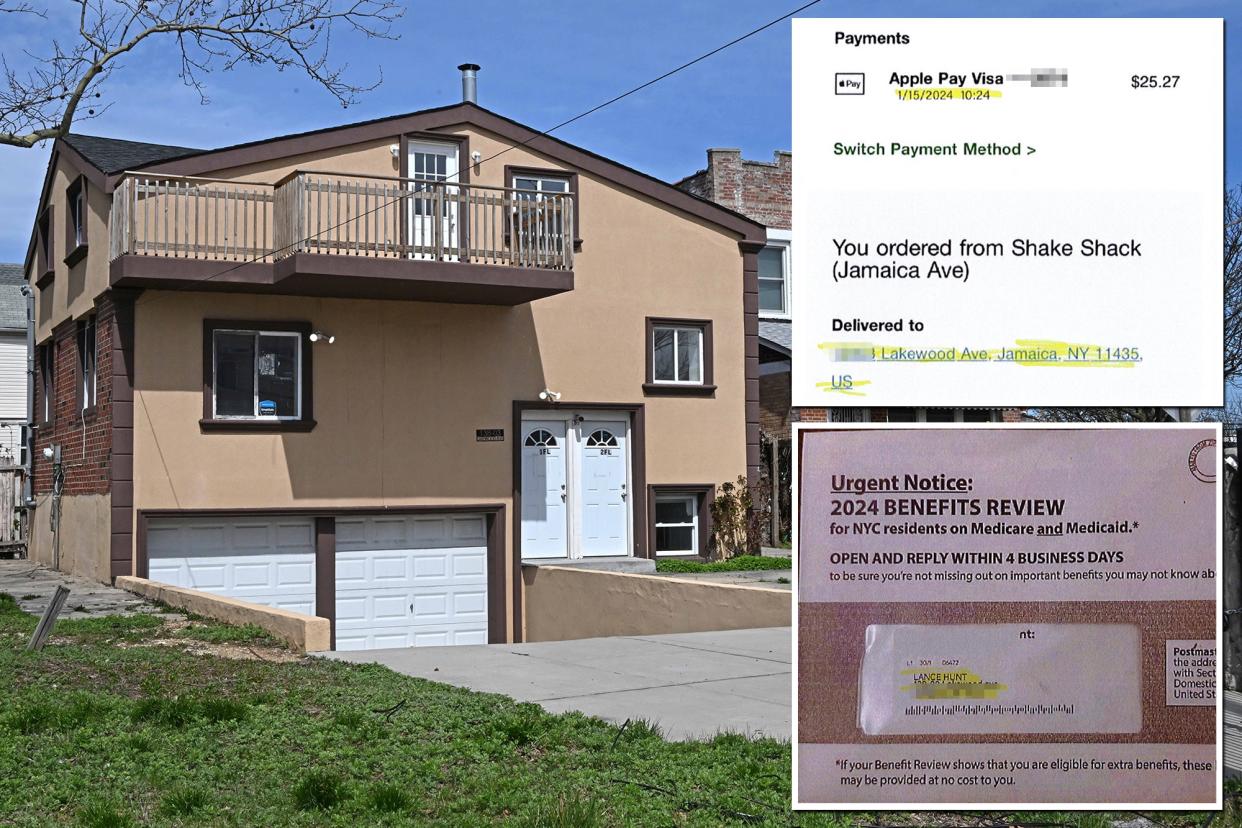
A squatter who tried to use a Shake Shack receipt to prove legal rights to a Queens house was indicted on charges including burglary and identity theft, prosecutors said Monday.
Lance White-Hunt, 24, of 18th Street in Brooklyn, went so far as to sue the actual homeowners — Denis Kurlyand and Juliya Fulman — back in March to cement his legal right to live in the $930,000 home on Lakewood Avenue.
But his plan backfired and he has been hit with an 18-count indictment that could put him behind bars for 15 years if he’s convicted, according to the Queens District Attorney’s Office.

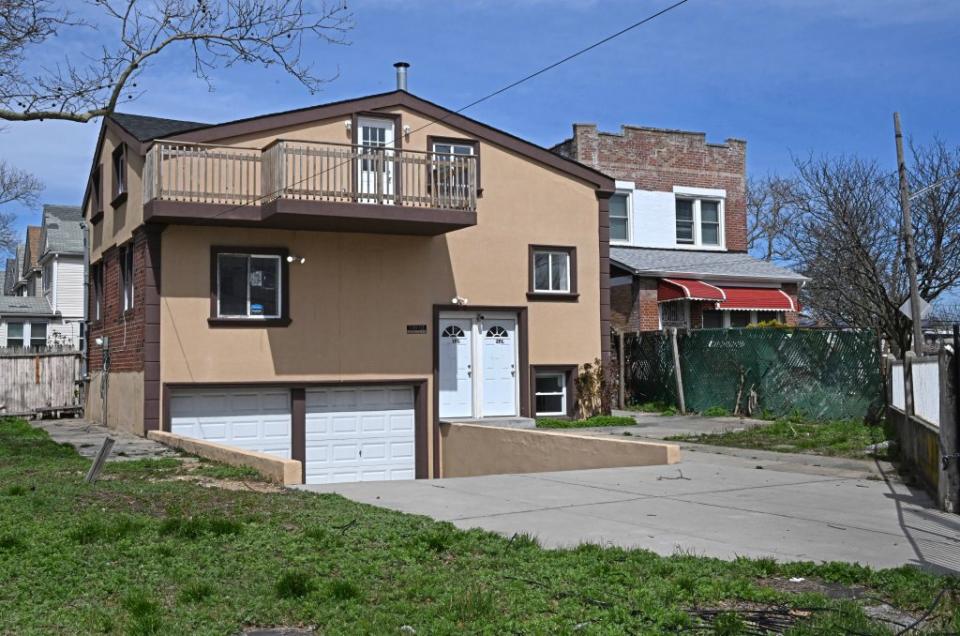
“You cannot claim rights to a home that you have entered illegally,” DA Melinda Katz said in a statement. “My office will not allow individuals to capitalize on the confusion surrounding squatters’ rights for their own personal gain.
“We will bring criminal charges and secure indictments not only for the unlawful occupancy, but also for any forged documents used in the commission of the crime,“ she continued. “The law does not permit illegal residency, and we will continue to prosecute such cases in Queens.”
White-Hunt is facing charges of second-degree burglary, two counts of second-degree criminal possession of a forged instrument, five counts of first-degree identity theft, attempted grand larceny and other crimes, the DA’s office said.
He’s scheduled to return to Queens Supreme Court on June 11.
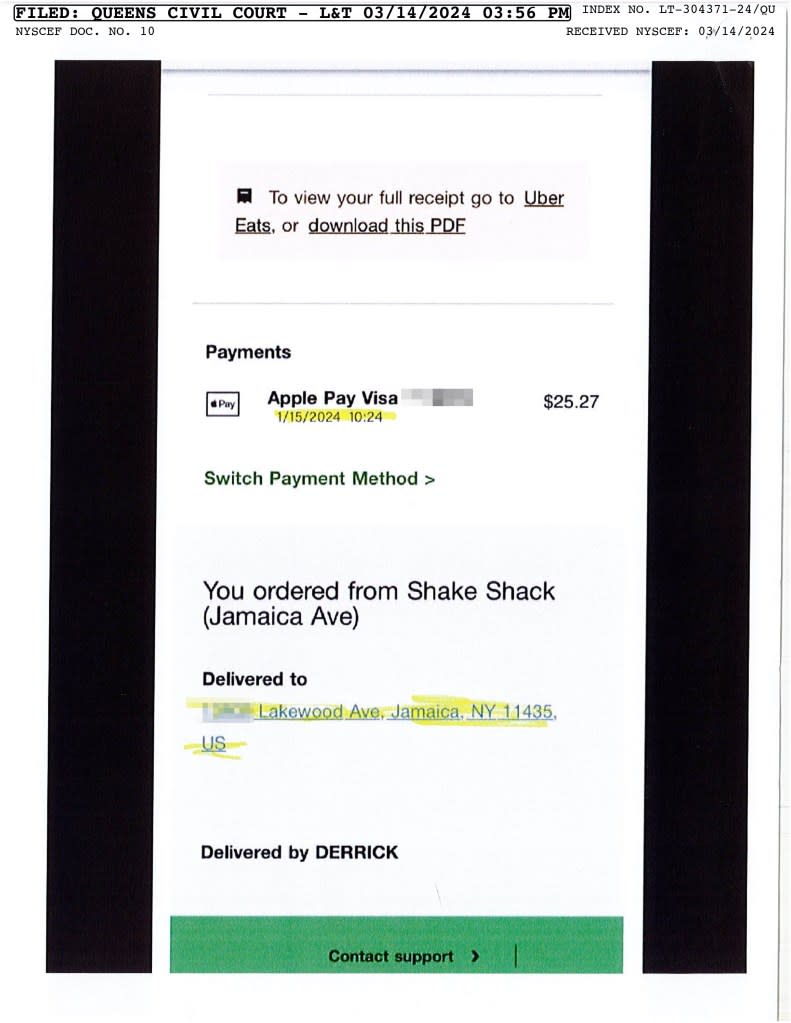
White-Hunt and his accomplice, Rondie L. Francis, made headlines in early April after they launched their dubious lawsuit, which a judge has since dismissed.
As part of the suit, the pair submitted various pieces of evidence — including an application approval letter, a rental lease, mail addressed to them and the infamous Uber Eats receipt for $25.27 that purportedly showed they had food delivered to the house months before.
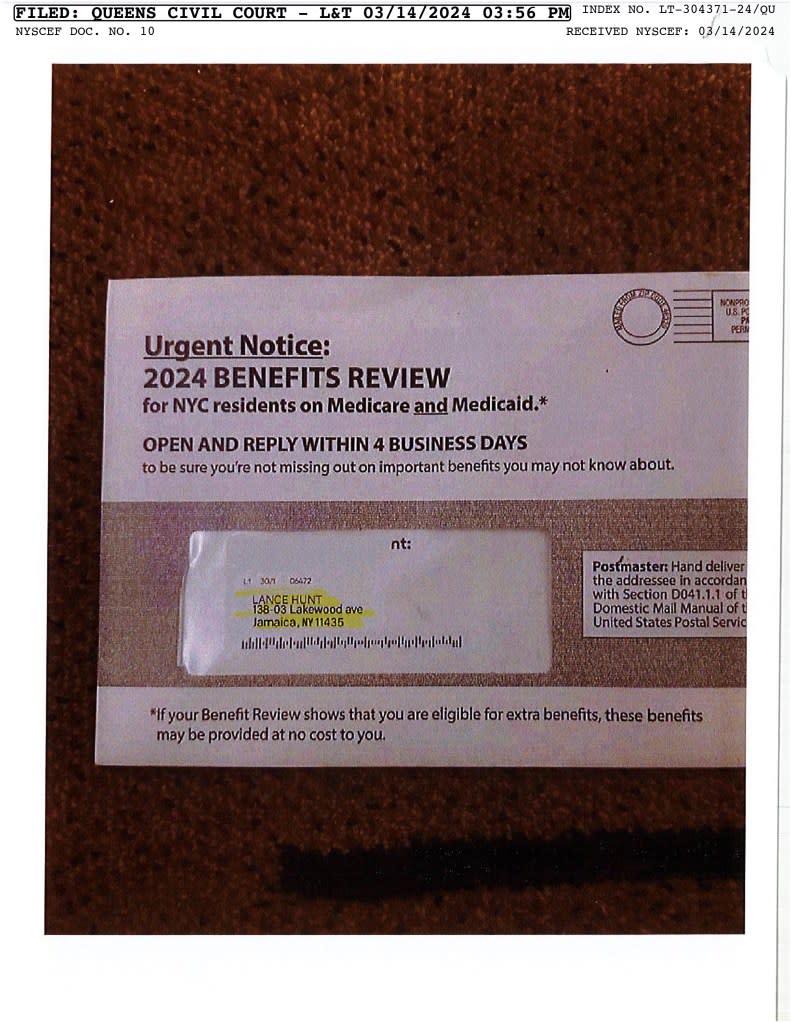
The documents were meant to establish their move-in date, since New York City law declares squatters must only occupy a property for 30 days before they’re eligible for legal protections that make it difficult to evict them.
The pair wanted the court to make Kurlyand and Furman give them a front-door key or give them permission to change the locks.
But the actual owners told The Post that the documents were all fake.
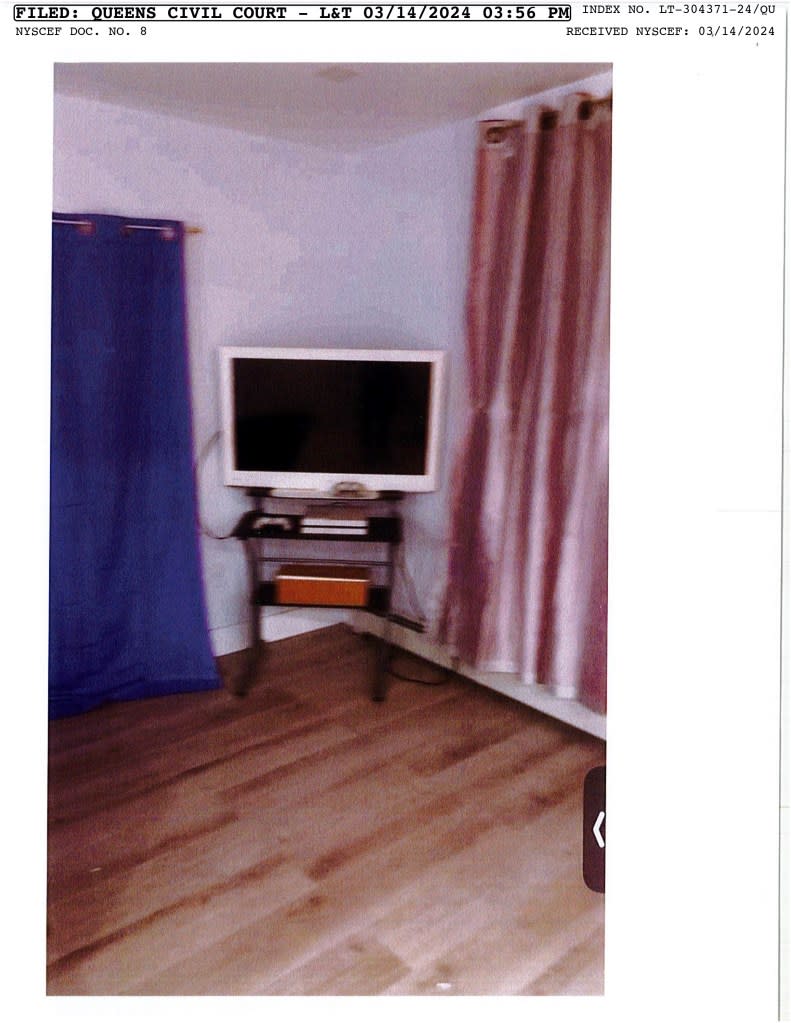
“Everything they’re presenting is fraudulent,” Kurlyand said, with Fulman further claiming that the documents are “clearly photoshopped.”
The DA said in her statement that the owner’s real estate broker made regular trips to the property after putting the house up for rent in February 2024.
But a few weeks later, the broker noticed someone had changed the locks — and she saw White-Hunt inside, according to the DA’s office.
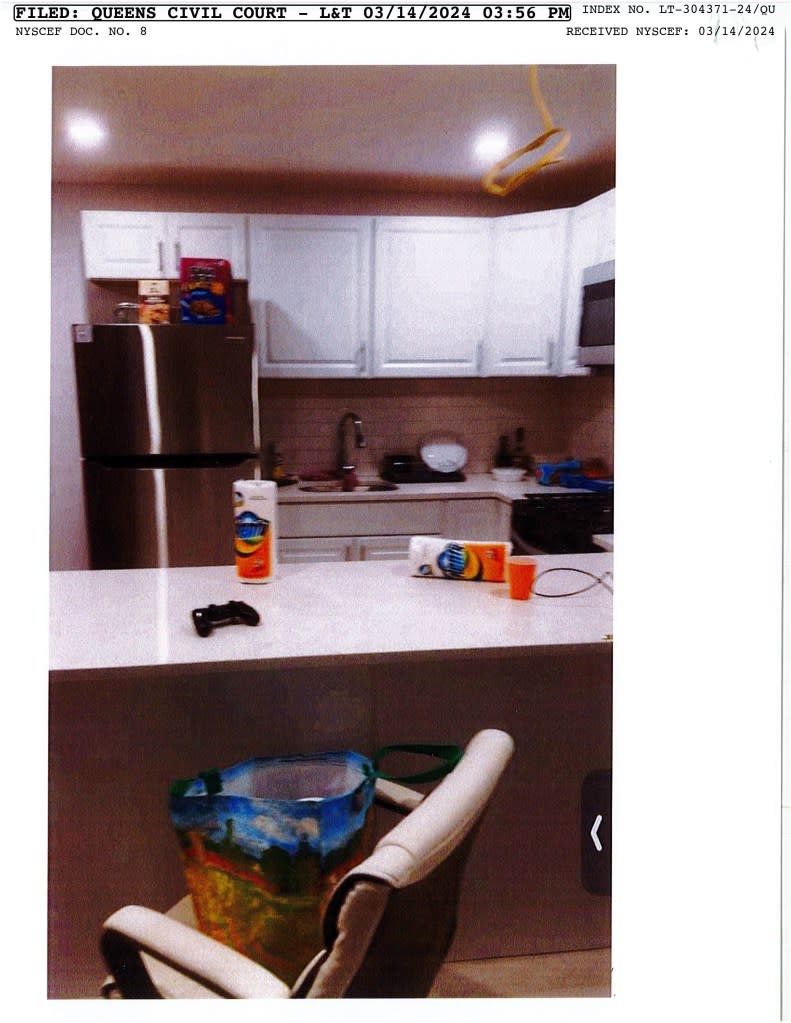
She called the police, and White-Hunt told officers that he’d been living there since January.
As proof, he handed them a rental lease signed by the broker — who took one look and said she’d never seen the document and that the signature was fake, according to prosecutors.
Later, White-Hunt handed cops phone and electric bills as proof of residence. But the phone and electric companies confirmed they were also fake, the statement said.
White-Hunt sued the homeowner’s LLC and the broker, but the court later determined the lease he handed over was different from the one he handed cops.
The district attorney’s Detective Bureau arrested him on May 13.

 Yahoo News
Yahoo News 
